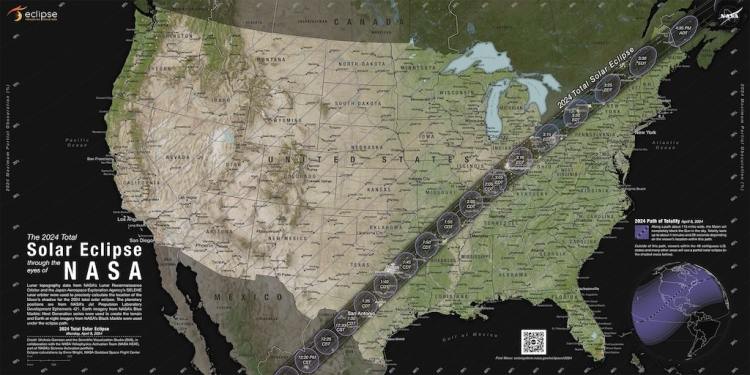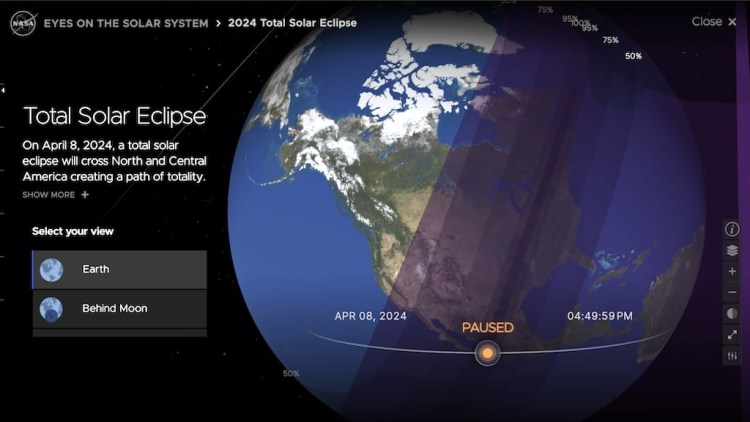
On April 8, 2024, a total solar eclipse will be visible across North America, starting with Mexico, then appearing across a large diagonal swath of the United States, and finally onto northeastern Canada. It will have a totality of up to 4 and a half minutes (where the moon is blocking out the sun), nearly twice the time of the 2017 eclipse.
A total solar eclipse happens when the Moon passes between the Sun and Earth, completely blocking the face of the Sun. The sky will darken as if it were dawn or dusk.
NASA has information on where and when to view this incredible natural event.
The path of the eclipse continues from Mexico, entering the United States in Texas, and traveling through Oklahoma, Arkansas, Missouri, Illinois, Kentucky, Indiana, Ohio, Pennsylvania, New York, Vermont, New Hampshire, and Maine. The eclipse will enter Canada in Southern Ontario, and continue through Quebec, New Brunswick, Prince Edward Island, and Cape Breton. The eclipse will exit continental North America on the Atlantic coast of Newfoundland, Canada, at 5:16 p.m. NDT.

They also explain how best to view an eclipse with safety in mind.
When watching the partial phases of the solar eclipse directly with your eyes, which happens before and after totality, you must look through safe solar viewing glasses (“eclipse glasses”) or a safe handheld solar viewer at all times. You can also use an indirect viewing method, such as a pinhole projector.?
This is the last total eclipse of the sun viewable from the United States until 2044.
After the total solar eclipse on April 8, 2024, the next total solar eclipse that can be seen from the contiguous United States will be on Aug. 23, 2044
Here’s an excellent video showing the path of the solar eclipse.

0 Commentaires